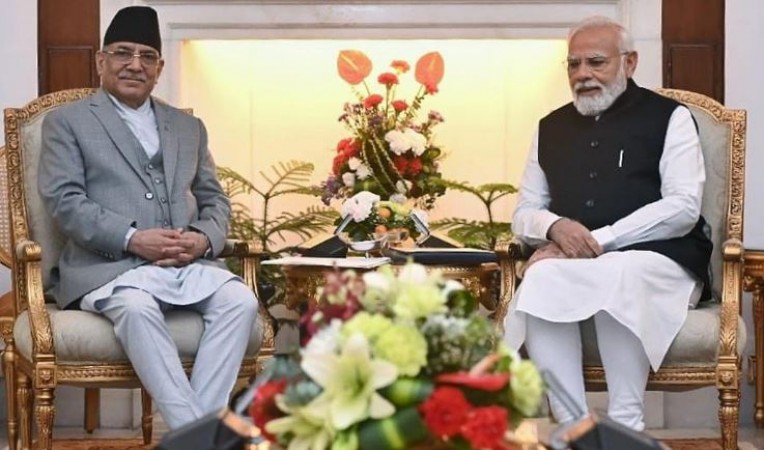
NEW DELHI: Prime Minister Narendra Modi and his Nepalese counterpart Pushpakamal Dahal, also known as "Prachanda," today, June 1, held extensive discussions with a focus on advancing India-Nepal collaboration in a number of areas, including energy, connectivity, and trade.
On May 31, the Nepalese Prime Minister started a four-day trip to India. The 68-year-old Communist Party of Nepal-Maoist (CPN-Maoist) leader is making his first bilateral travel abroad since taking power in December 2022.
India PM Narendra Modi and Prachanda's discussions would centre on deepening cooperation in the connectivity, economy, energy, and infrastructure sectors between India and Nepal, people familiar with the Nepalese leader's visit to India said.
In terms of India's general strategic interests in the area, Nepal is significant, and the leaders of the two nations have frequently discussed their long-standing "Roti-Beti" relationship, which refers to cross-border marriages between citizens of the two nations.
With five Indian States viz., Sikkim, West Bengal, Bihar, Uttar Pradesh, and Uttarakhand, the country shares a border of more than 1,850 kilometres. Notably, Nepal relies heavily on India for the transportation of goods and services.
India provides Nepal with access to the sea, and Nepal imports a large number of its needs from and through India.
The India-Nepal Treaty of Peace and Friendship of 1950 tailors the bedrock of the special relations between the two countries.
N.P. Saud, the foreign minister of Nepal, who is a member of Prachanda's team, said on Wednesday (May 31) that the bilateral discussions will cover various topics, including commerce, transit, connectivity, and border issues.
Pushpakamal Dahal Prachanda, commonly known as Prachanda, is a prominent Nepalese politician and former guerrilla leader. Prachanda played a significant role in the communist insurgency and was the chairman of the Communist Party of Nepal (Maoist) from 1991 to 2009 and again from 2016 to 2021. Prachanda's political career has been significant in shaping Nepal's recent history. His leadership and involvement in the Maoist movement have left a lasting impact on Nepalese politics, and his contributions to the peace process and transition to democracy are widely recognized.